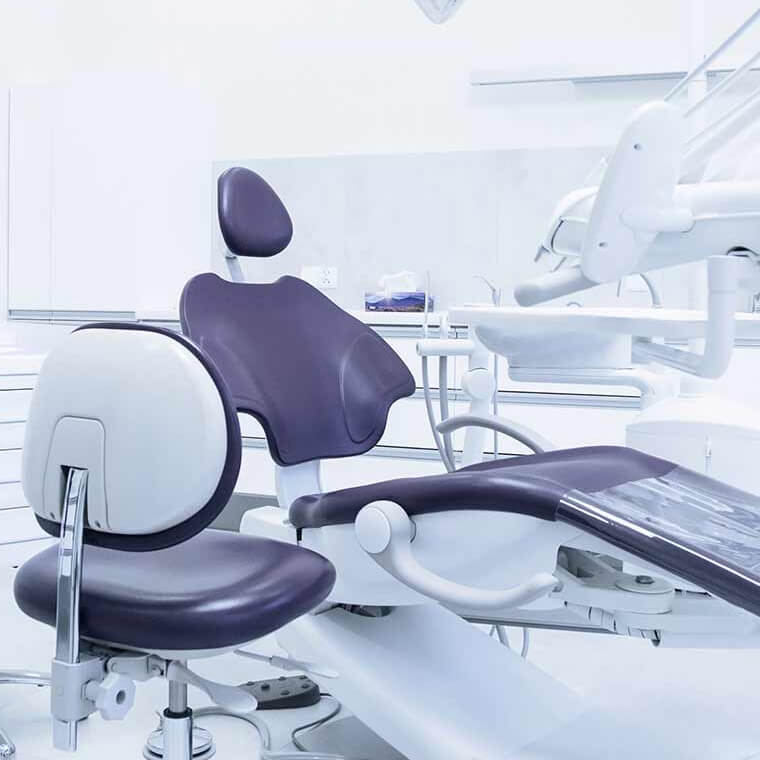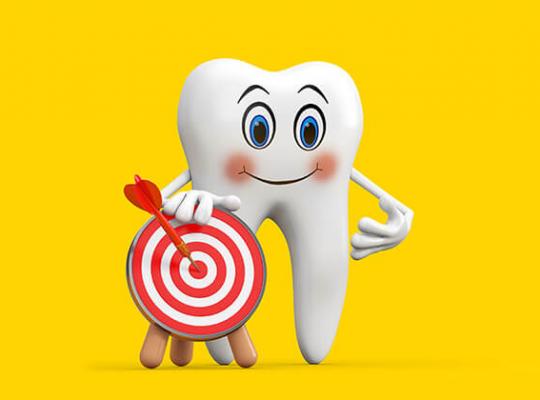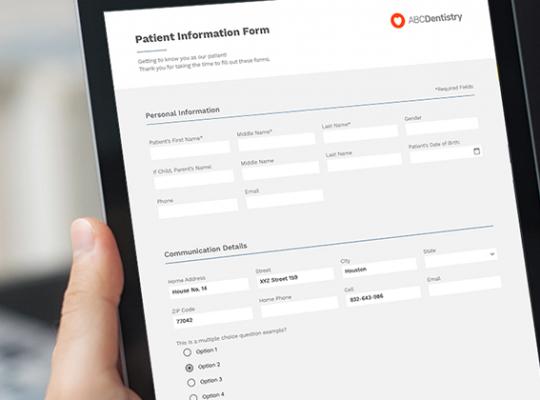The Ultimate Guide to Buying a Dental Practice

If you're currently in the market to buy a dental practice, you're probably overwhelmed, confused, and excited all at the same time. For many dentists in your shoes, buying an already established office with a large patient base seems like a wise investment. But, unfortunately, there really isn't any guarantee you'll be able to maintain that level of success due to numerous factors involved, including potential decline and hurdles to generating income.
You see, when you buy a dental practice, you have to evaluate the likelihood of your ability to grow the practice. This means navigating complex business endeavors, successfully marketing your brand, and continuing to convert leads. While your ultimate goal is to achieve a healthy ROI, you need to be sure your investment is a sound decision.
In this guide, our team will provide crucial insights into how buying a dental company works and offer important tips to ensure you get the most out of your venture.
The Pros and Cons of Buying a Dental Practice

The decision to buy a dental practice can come at any point in your career. Whether you just graduated dental school or already have a chain of offices and want to expand your brand further, the benefits and risks of investing in an existing company are the same.
First, let's consider the primary benefits of deciding to purchase a dental business:
- Existing practices come with an established presence in the community and, hopefully, a large base of active patients.
- You avoid the stress of trying to find a team right away because experienced staff is already available. This means you can begin making profits from the moment you take over.
- An established dental practice will have a reliable financial history to review and determine what you could potentially earn in the first year of ownership.
- While not necessarily all brand new, your office will have all the equipment and management software you need to get started.
- Because you already have active patients, you can save money on initial marketing costs.
This sounds like a win-win, right? The reality is that with new ownership comes change. Buying a dental company does have its cons, too, including:
- Turnover is unavoidable, but statistics show that most new dental practice owners only experience approximately 10% of patients leaving their first year.
- When it comes to existing team members, don't be too upset if you lose one or two employees that first year, too.
- You can expect additional investment into practice management systems, equipment breakdowns and/or upgrades, and other unexpected expenses.
- It's possible that preconceived ideas about a dental practice won't meet your expectations once you take over ownership. From employee attitudes to patient compliance issues, be prepared for some bumps along the way.
At the end of the day, most existing dental firms are profitable, but you have to ensure the services it provides will earn enough revenue to justify your buying it. Think about how much space is being utilized for your hygienist appointments and time spent on therapeutics and not preventative visits.
Another area to consider is how much your operation costs are and if they square up with the amount of space being used for conducting patient care. If you have a large amount of square footage on the property, how much of it is being actively used for procedures like x rays, oral surgeries, cleanings, etc. If you have a lot of extra space, do you have enough business to justify creating additional treatment areas?
Finally, remember that location is everything, even for a dental company. Ideally, you should create a steady, profitable stream of revenue by offering a blend of dental services like whitening, surgeries, and possibly specialty treatments like Invisalign.
Top Features of a Dental Practice Worth Buying

When you're shopping dental practice portfolios, there will be a ton of information to take in and assess. However, knowing what data to prioritize can be challenging for first-time buyers. This section will review the many features that can determine if you should buy a dental practice or not.
Dental Office Location
Where a prospective dental company is located is essential on a professional and personal level. Consider the fact that taking on a practice will quickly take over a large part of your life. You may realize that you want to live nearby, which means you need to consider the quality of the surrounding neighborhood. How affordable is the cost of living in the area, and if you have a family, do the schools meet your educational standards for your children?
Some common characteristics you should take into account on a professional level include:
Growing without the pains: Granite Bay Pediatric Dentistry's 4X revenue growth in 2.5 years with Adit Are you a new dental practice or startup? Granite Bay Pediatric Dentistry’s rapid success is rare in the dental industry but common among...
Download Case Study- Overall demographics of the communities you serve (average household income, population age, transportation options, etc.)
- How many other dental practices in the area would directly compete with your own company
- Parking availability
- If a property is leased, find out about its terms and if there is an option to buy or not
- Overall condition of the building your office is located in
- What kind of curb appeal does your office building have, and is it easily seen from the street
- Type of surrounding businesses and amenities in your area
Personal characteristics really depend on the lifestyle you wish to maintain or create for yourself and your family. When assessing the location of a prospective dental office purchase, consider the following before making your decision:
- Quality of schools
- The overall cost of living in the neighborhood you would want to live
- How long your commute is to your dental practice
- The amenities and businesses located in your surrounding area
The Type of Patients You Will Serve
Another aspect of buying a dental practice is the patients you will be serving. Your prospect may be a profitable and recognized office in the area, but you may not be geared toward their patient base. For example, if the company you want to buy is located in a city populated by retirees, you'll mainly be dealing with elderly patients. This may not be ideal if your primary focus is cosmetic dentistry options like teeth whitening and Invisalign treatments.
Always take the time to investigate patient demographics of any dental office you plan to purchase. If you aren't comfortable serving their current patient base, you would have to start the practice completely over to focus on your preferred market or change your skill set to accommodate the needs of existing patients.
Below are the key metrics you need to review when it comes to evaluating an existing company's clientele:
- Patient demographics
- Monthly new patient rate
- Active patient numbers for at least the previous 12 months
- Retention rate
- Most processed insurance plans
- Determine of most profitable and frequently performed procedures
- Metrics regarding communication methods with patients
Current Financial Health of the Dental Practice
While knowing what demographics make up your patient base is crucial, so is a prospective practice's financial history. Reviewing the history and health of a rental company's finances should be done with the help of a professional. Still, there are some key indicators you can assess to help you decide if a firm is worth seriously considering:
- Several years of recent income tax filings
- Current balance sheets and P&L statements
- A breakdown of revenue by procedures performed
- Evaluation of how much revenue gets spent on overhead costs
- Employee expenses
- Fee schedules for insurance reimbursements and those related to services
- Revenues broken down by procedure
- Productivity reports for staff members and revenue they earned the practice
These are just a few of many financial factors determining how much cash flow the prospective practice earns and counts toward your potential profits should you decide to buy the business. Also, don't hesitate to find out why the dental office is for sale. Even if their company is currently profitable, you probably don't want to invest in it's been experiencing a steady decline in its patient base or revenue.
Assess the Current State of a Dental Practice's Equipment
Buying an existing dental practice means you get a company that comes with everything you need to start making money immediately. Being able to avoid making purchases on expensive equipment right away is definitely an advantage. However, to ensure you provide the best possible care to your dental patients, it's important to assess the current technology already being used.
Always conduct a site visit and evaluate the equipment and software tools already in use before you buy a dental practice. This usually requires hiring someone who has operation and repair experience, and they can verify the current condition and any upgrades that need to be made sooner than later.
Many of the following dental equipment should already be on-site and will require a professional appraisal:
- X-ray machines
- Sterilization equipment
- Automated external defibrillator (AED)
- Patient monitoring equipment
- Ultrasonic cleaners
- Practice management software
- Emergency medical kits
- Ventilation and filters in procedure rooms
- Dental water lines
- Oxygen and gas equipment
- Software integrations
- Safety devices (Smoke and carbon monoxide detectors, fire extinguishers, etc.)
Tips for Finding a Dental Practice You Want to Buy

Now that you have a better idea of what features to evaluate in your prospective rental company, it's time to really start shopping! To find the most listings, we recommend consulting with a dental practice broker or marketing agency. While this isn't a necessary step to find an office up for sale, it certainly can help save time on your search. Of course, you can always look for sales listings in various dental trade journals and even in dental school postings.
Also, consider reaching out to your professional colleagues in the area you plan to buy a dental practice. They may often know of a partner or associate who is retiring and may consider selling their office. When you do find a prospective company you'd seriously consider buying, take the following steps before making any final decisions:
Get the Dental Facility Appraised
Now, we have already discussed getting equipment appraised earlier, but there are other areas besides finances to consider.
- If it's a leased space, are the terms fair?
- Could you expand your practice into an adjacent area if needed?
- Is it possible for you to purchase the property as a lease option?
- How up-to-date are the current electrical system and climate control for dental firms that come with real estate?
All of these details are necessary to get professionally appraised so you can make a fair offer.
Learn Everything You Can About The Seller
There are many reasons why a dental company owner might decide it's time to sell. It could simply be they want to remove an outlier office from their network, or maybe the business is declining. Besides finding out the motivation for selling, knowing as much as possible about the seller can give you insight into potential issues you might inherit as the new owner.
You should have an opportunity to speak with the current dental company owner or make a few inquiries to them through their agent. Make sure to ask the following to get a clear picture of how the practice was previously managed:
- Why the dental practice is for sale. If you are told anything outside of retiring, go deeper with your questioning.
- What kind of treatment philosophy has been used during the previous dentist's tenure?
- If there are profitability issues, what do they believe is the root of the problem? This can help you determine the best approach to address it.
- Does the practice currently provide oral healthcare for a specific demographic in the area?
- Are there additional specialists they have partnered with within their practice?
- What style of treatment planning does the dentist offer? Does this match your own, or will you need to plan how to transition your approach?
It would be best to compare the answers you get with reviews of the practice that you find online. Anything you get told about the dental practice you're thinking about buying should be taken with a grain of salt and verified. You're going to be given a lot of information from the seller about their office, but like anything being sold, you can't take everything said at face value. Reviewing patient feedback on review sites is a great way to corroborate how previous management handled disputes, patient care, and more.
This information can give you a comprehensive view of the current reputation of the existing brand. Knowing where they stand in the public eye and with their patients can help you address issues immediately upon taking ownership.
Get a Clear Picture of the Community You Will Serve
Earlier in this guide, we discussed the importance of evaluating the dental practice location you want to buy regarding your personal and professional wants. But, you also need to assess the community your company will serve and the number of already established oral healthcare providers in the area.
It is vital to know who your competition is, how they market their services in the area, and how saturated your region is with other dentists offering similar oral healthcare. If the location of your prospective purchase is already popular with others in your field, this could mean more advertising costs and add on additional PPO networks. Underserved communities are often more profitable from the start and can save you significant start-up costs early on.
Knowing the ratio between dental providers and the local population is crucial to your growth potential in that area. For example, suppose local trends show that the city is undergoing significant growth with new families moving into the community annually. In that case, this could offset some of the current oversaturation of providers in your area. You then have to determine if your office is in an accessible location popular in the region.
While a dental company can be successful anywhere, it can be more challenging to achieve this when you have excessive competition or insurers around your location.
Get to Know the Existing Dental Team
Most new owners won't know the quality of their team until they work with them regularly. This experience can leave you with some tough decisions about your employees and if retraining is best or replacing some of them altogether.
It's essential to remember that existing team members have extensive knowledge about your newly purchased practice, so you should keep some of the original staff onboard. This will not only ease your transition and educate you about previous management approaches in the business, but it can be a great way to introduce you to existing patients and build a rapport.
If you do have a chance to interview employees before you decide to buy a dental practice, be sure to get some of the following information from them:
- Years of experience in their current position.
- Are there any staffing shortages in essential positions?
- What positions are essential to ensuring the quality of care, recalling existing patients, and converting prospects into booked appointments?
- Look for online reviews that mention the names of employed team members.
- Evaluate how patients are greeted and managed during their visit.
Hire a Dental Consultant to Guide You Through the Buying Process
If you have a few practices you want to explore purchasing, don't wait to hire an adviser to help you with the finer details of assessing your prospects and helping you make a final decision on buying or not. But, of course, you need more than a broker to help you with this process. At Adit, our dental consultants recommend putting together a team of the following professionals when you have narrowed down your interests:
- A business attorney with real estate experience ensures all of your agreements and sales contracts are in order.
- A dental consultant that can provide a professional assessment of your future practice. These professionals can assist in analyzing current practice business processes, advertising effectiveness, patient demographics, and so much more.
- An accountant who specializes in healthcare services to assist in analyzing the practice and advise you on tax considerations.
With an experienced support team by your side, you will have a smoother purchase experience.
Everything You Need to Know About Buying and Owning a Dental Practice

So, you've learned all about the process of choosing a dental practice, but what is it like to own one? The following tips help prepare you for the responsibilities that come with ownership.
Research What It's Like to Own a Dental Company
It's one thing to work as a dentist, but another thing entirely to own a practice. To get a better idea of what you're in for, we recommend conducting some research before even beginning your search for the perfect office to make your own.
There are two approaches you can take: reviewing sales listings to get an idea of what is typically included with a sale and speaking with other owners who have already navigated this process. You'll gain an extraordinary amount of insight regarding the good and the bad of owning one of these businesses.
When discussing what aspects of ownership you need to know about before you buy a dental practice, make sure to cover the following topics:
- Decisions that were the most difficult to make during the buying process
- Were there any other professionals missing in their consulting team they should have filled?
- What information they wish they'd have known before making their purchase
- Any surprise costs they hadn't thought of which popped up immediately after buying their dental office
- Who proved to be most helpful when navigating the purchase process
- Is there anything they wish they'd have done before finalizing their purchase
- How soon did they need to hire additional office staff?
- What changes were easy to make in their practice, and which caused the most stress?
- Were there any costs that could have been avoided or minimized during the sales process?
While you can always hop on the internet and google opinions on what it's like to own a rental company, nothing replaces the firsthand experiences of those you trust in your field who've already been through the process.
As mentioned earlier, you can also get an idea of what to expect as a practice owner through listings you find on internet real estate sites that specialize in dental company sales. The information you can garner from these ads can help you visualize some of the operational costs, equipment demands, and even active patient numbers.
During your reading, try to pay attention to the following details:
- How long the practice has been in operation
- Annual gross revenue
- Reason for sale
- PPO revenue vs. service fees
- Additional locations, if applicable
- Square footage of the property
- How many new patients the office gets each month
- Type of equipment already in the office
Create a Budget You Can Stick To
When you first begin learning about the cost of acquiring a dental practice, you will need to consult with a financial planner familiar with the industry. With their assistance, you can create a budget that will account for any costs and line items that may come up during the purchase process.
When determining how much a specific practice is worth, your advisor will evaluate the qualitative and quantitative variables of the business. Typically, qualitative variables directly impact the quantitative numbers resulting from the company's performance.
Two methods can be used to determine how much your prospective dental firm is worth. First, the Market Approach will take into account historical sales data of other practices in the area. Second, this method relies on the final sale pricing and compares it to an office's annual revenue and cash flow.
The other approach your advisor might use is the Income Approach, which can be conducted in one of two ways:
Capitalized Earnings
This method anticipates a practice's cash flow for the coming year. Once this number has been determined, it will be divided by the current capitalization rate to determine the current market value of your prospective dental firm.
Discounted Cash Flow
This method of the Income Approach will project a dental office's projected cash flow for the coming five years to calculate the current net value of its revenue stream is. Additionally, the perpetual value of the most recent cash flow is added to this. These estimations get based on the latest economic or industry growth rate. A discount rate usually ranges between 18 - 30%, though larger dental companies are on the lower end of this spectrum.
Keep in mind that the purpose of an income-based approach will consider both the tangible and intangible assets associated with the practice you want to purchase. It will take this value and then apply a rate of return to the earnings stream. These formulas are ideal for dental firms with a track record of strong revenue and growth and a resilient patient base.
Unfortunately, because every company is unique, it's impossible to give a definitive answer as to how much it will cost you to buy a dental practice.
You Will Perform Several Types of Appraisals
Throughout this guide, we've mentioned the importance of conducting an appraisal of company equipment and software appraised, but the reality is you will need several. To get a handle on the level of cash flow your prospective company is earning, your support team will perform its due diligence on every aspect of the following:
- Assets
- Overhead
- Production
- Collections
- Insurance
- Taxes
- Accounts Receivable
You will also need to learn how much the company's goodwill will cost you and if the seller has quantified this into their price. Finally, to understand cash flow, you and your team will need to conduct thorough due diligence on assets, overhead, production, collections, accounts receivable, insurance, and taxes.
Remember, Everything is Negotiable
Most dental professionals in the market to buy a dental practice don't have the needed negotiation skills required in commercial real estate transactions. However, a skilled real estate agent familiar with the dental industry will prove invaluable during this process. Their previous experience will ensure that any sale you agree to accounts for factors like depreciation of practice equipment, property value, and more. In addition, they will know how to use these different criteria as leverage and get you the best final purchase price for your future practice.
Also, they will have crucial information regarding different financing options that you can discuss with your business consultant.
What to Expect When Finalizing Your Dental Practice Purchase

The primary document that will finalize your purchase is the practice sale agreement. While this isn't an overly complex document to understand, you should have your attorney review it to ensure every aspect of the transaction is correctly accounted for.
Most sales agreements will include the following details:
- Warranties for both the buyer and the seller
- A clear description of the assets being sold
- Covenant-not-to-compete agreement
- Allocation of the sale price for the business and its included assets
- Custodianship of patient records
- Transition agreement should the original owner remain to ease the transfer of ownership
You will also have to sign a new lease agreement if the office is in a rented space. Once these steps are finalized, you will need to get a tax ID number for your company and open a business checking account with your bank. If you have any insurance policies that require you to enter contracts to get a preferred provider status, you will also need to transfer these.
What It Takes to Transition Your New Dental Practice Successfully
Congratulations! You bought a dental practice and now have to begin implementing your transition plan. Ideally, you and your consultants had already started this process before signing the final sales agreement. But even if not, you likely still have a transition period included as part of your purchase. This means you will have the benefit of the seller remaining with your new company for a few months to help you learn how the practice operates.
Take this time to absorb every bit of information you can get from the old owner. Listen to the staff and the patients, too, so you have a complete picture of how things are currently run. This is also a time to take notes on areas you would like to see eventually change or improve.
To ensure that your transition into ownership goes as smoothly as possible, the following tips will prove helpful:
Get to Know Your Staff and Take Notes
Ideally, you won't be meeting existing team members for the first time after purchasing their company. Your consultants should have already ensured you've had a chance to meet everyone before finalizing the sale. The seller should have let them know the practice was being sold and explained who you were and what to expect as their new leader.
When you spend your first day in your dental office as the new owner, treat long-time team members with the respect they deserve. They will prove to be your strongest allies when transitioning to your control and maintain your brand's reputation with existing and prospective patients.
You may be tempted to replace some of your employees write away because of performance issues, but resist this urge. Instead, make a note of your observations regarding existing staff and take time to fully absorb the entire work dynamic of your new company first.
It's okay to share with them your treatment philosophy and management style. Being transparent can ease apprehension about the changes ahead and give them insight into how your leadership could impact their positions. Being open with them about your vision and enthusiasm about working with them can also encourage them to build a trusting relationship with you.
How to Recruit New Dental Team Members
You will inevitably want to bring on board a few new team members to fill some gaps you may see in current operation coverage. The need for recruiting staff is often the result of two situations:
- Current operational demands are overwhelming your team, and this is affecting overall patient experiences and outcomes.
- You've recognized a revenue stream, and you need to hire someone to provide the service that generates it.
Regardless of why you need to hire additional employees, make sure you create a clear description of their role in your company. This will ensure that anyone you consider for the position is the best fit.
Not sure how to define a position? Ask yourself the following when trying to flesh it out:
- What technical skills are necessary to perform the job?
- Who will supervise this position?
- What is the primary purpose of the role?
- How much independent decision-making is required?
- What will their average day look like?
- What soft skills does one need to perform their duties?
Once you have created a solid description of your new position, you need to find qualified applicants to fill it. Consider the following sources to get the best candidates:
- Post job ads on popular employment sites like LinkedIn, Monster.com, and even with your state's unemployment agency.
- Don't forget to list your position on dental industry sites like the American Dental Association's job board.
- Consider using a dental staffing firm, though you may have to pay a fee for their help.
- Contact other dental colleagues for referrals to potential candidates that fit the job role requirements.
Focus on Patient Retention
One of the most important tasks you will immediately need to focus on is earning the trust of your existing patients. You're a new and unfamiliar face around the office, and people will notice. Remember, you aren't trying to outshine the previous owner. Instead, you want to develop your rapport and show their oral healthcare is in safe hands.
There are three primary ways you can begin retaining patients from the moment you buy a dental practice:
- Introduce yourself with a personalized note to your patients, or consider creating a brochure that highlights the new patient experience coming to your company.
- Hold a meet and greet at the office. One great way to meet your current patient base is to invite them out for a free grill out or similar event. This allows them to express their own needs and wants expectations, and more in a more personal setting.
- A short video clip where you introduce yourself to your patients is another great way to reach everyone quickly. With a well-produced film, you can share your treatment philosophy with a simple click of a link in an email, text message, or on your website. Even better? You can get feedback right away about your new practice by including a survey.
Remember, acquiring and recalling patients is more expensive than retaining them. Investing in your patients' experience may provide opportunities that the seller hadn't considered or pursued, including:
- Birthday messages
- Offers for returning patients
- Online appointment scheduling
- Automated invoicing and payment integrations via email and/or text
Ready to Buy a Dental Practice? Trust Adit to Guide You

Buying a dental company is an exciting step in your professional career, but choosing the right business to invest in and transitioning ownership successfully can be challenging. You don't want to sink your dollars into a struggling firm or buy into a market area that is oversaturated. Working with a professional consultation team is crucial to ensure that your bases are covered and maximize your venture.
At Adit, we've partnered with numerous dental professionals across the United States and the world who are in the market to buy a practice. Our consultants have years of experience that can provide invaluable insight into how your future office should operate, the challenges it will face, and how our solutions can boost productivity and revenue for sustainable growth. We also offer a guarantee for our services that other dental marketing agencies can't match.
Reach out today to learn more!
more about Adit?
Say goodbye to the hassle of using multiple tools. Adit centralizes your calls, texts, payments, reviews, and scheduling into one powerful dashboard. Simplify your operations and boost patient satisfaction today.
Schedule a DemoAngela is a former English teacher turned marketing content specialist. Over the past 10 years, she’s developed marketing strategies to forge enduring bonds between B2B, B2C and SaaS companies and their clients through holistic education, effective communication, and captivating storytelling that moves audiences to act.
Get a $25 Gift Card when you take a demo
Schedule a DemoGet a $50 Gift Card
when you take a demo
Looks like you're out of bounds!
Hey there! Your current location falls outside Adit's area of operation. If this is unexpected, try disabling your VPN and refresh your page. For further assistance or to book a live demo, connect with us at 832-225-8865.
February 15 Amazon Demo Promo
Terms and Conditions
Last Updated: February 15, 2026Offer ends February 18, 2026, and is limited to prospective customers who sign an annual agreement before February 28, 2026. Gift card will be emailed to the company owner or established representative within 4 weeks of signing the annual agreement. Offer may not be combined with any other offers and is limited to one (1) gift card per office. Offer is not available to current customers or to prospective customers or individuals that have participated in a Adit demo during the prior six (6) months. Recipient is responsible for all taxes and fees associated with receipt and/or use of the gift card as well as reporting the receipt of the gift card as required under applicable federal and state laws. Adit is not responsible for and will not replace the gift card if it is lost or damaged, is not used within any applicable timeframe, or is misused by the recipient. Adit is not responsible for any injury or damage to persons or property which may be caused, directly or indirectly, in whole or in part, from the recipient’s participation in the promotion or receipt or use of the gift card. Recipient agrees to indemnify, defend and hold harmless Adit from and against any and all claims, expenses, and liabilities (including reasonable attorney’s fees) arising out of or relating to a recipient’s participation in the promotion and/or recipient’s acceptance, use or misuse of the gift card. This offer is sponsored by Adit Communications, Inc. and is in no way sponsored, endorsed or administered by, or associated with Amazon.
Thank You!
We appreciate your interest! Adit AI will be calling you in the next few minutes!
Why Adit?
Cut your software bill by up to 60% when you merge everything your dental office needs to run under one roof.
Centralize Communications
- Phones & TeleMed
- Emails & eFax
- Texting & Reminders
- Call Tracking and more!
Streamline Operations
- Patient Forms
- Online Scheduling
- Payments
- Reviews and more!
Boost Production
- Performance Dashboards
- Morning Huddle
- Claims & Collections
- Patient Profiles
- Follow Up Lists
- Year Over Year Metrics
Acquire More Patients
- Digital Marketing
- Website Design
- SEO
- Google Ads
- Facebook Ads
when you sign up with Adit!
Sign up by filling out the form







